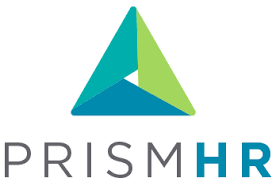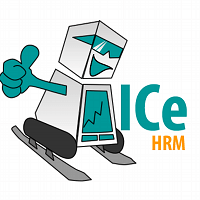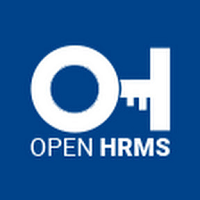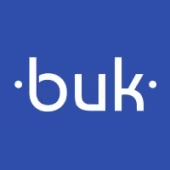Yes, most talent management software is accessible from numerous devices and platforms. As technology advances, many software vendors have made their platforms available via web browsers, desktop programs, and mobile applications. This allows customers to utilize the program on a variety of devices, including computers, tablets, and smartphones, regardless of operating system. Employees, supervisors, and HR experts can now access the program at any time and from any location.
List of 20 Best Talent Management Software
PrismHR is a web-based HR solution designed to enhance client and customer relationships. Its robust security features and seamless integration make it a highly sought-after platform. With frequent updates and an efficient resource management system,...Read More PrismHR
Courseplay is a software designed to revolutionize employee development. By harnessing the power of AI, Courseplay offers a complete learning journey that includes on-the-job learning, social interaction and formal training within the workplace. Our...Read More Courseplay
HR Partner solution for simplifying your HR responsibilities. Our secure and user-friendly platform offers a range of features, including employee record management and optimized leave request processes, tailored to meet the needs of small and medium...Read More HR Partner
IceHrm solution for all your HR management needs. This state-of-the-art software safeguards employee data by granting access only to authorized personnel. Keep a close eye on your workforces attendance through the punch-in and punch-out records, and...Read More IceHrm
Open HRMS is tool that encourages employees to participate and contribute at all levels. It offers valuable insights into performance and makes attendance tracking a breeze. The software is equipped with advanced recruitment features that make findin...Read More Open HRMS
ADP Vantage HCM – is a human capital management solution designed to streamline HR tasks, ensure compliance and provide valuable insights. With advanced features for payroll, benefits administration and talent management, this powerful tool el...Read More ADP Vantage HCM
Eightfold is an innovative talent intelligence software that utilizes AI technology to enhance the hiring and management process for companies. By utilizing advanced deep-learning algorithms and global data sets, Eightfold helps identify, retain, and...Read More Eightfold
WorkWise CRM is a CRM solution that efficiently works in conjunction with Aptean Industrial Manufacturing ERP. It offers a wide range of functionalities for sales, marketing, and customer service, giving a full view of all customer interactions. With...Read More WorkWise CRM
pepelwerk is an innovative digital platform that aims to streamline the job search process for job seekers and employers. Through utilizing advanced technology, the software efficiently matches qualified candidates with suitable job opportunities, re...Read More pepelwerk
OpenCATS - a free applicant tracking system that is designed by a team of industry experts to facilitate the recruitment process. It streamlines the entire process, starting from job postings to receiving applications from candidates. With OpenCATS,...Read More OpenCATS
Teamable, talent management software that leverages the networks of employees to identify and engage the most qualified candidates. By facilitating seamless connections between top talent and available positions, Teamable streamlines the hiring proce...Read More Teamable
RELIANT Talent Management Software is a solution for performance management and learning. It streamlines the evaluation process, allowing for efficient identification of employee strengths and weaknesses. Elevate your talent management strategies wit...Read More Reliant Talent Management Software
IBM Talent - a software solution that provides businesses with AI-powered analysis, streamlined recruitment procedures, and elevated staff satisfaction. Its robust capabilities enable organizations to effectively attract, nurture, and retain top tale...Read More IBM Talent
Buk - the leading HR software designed to revolutionize your workplace. Empower managers with more time to prioritize employee happiness, while Buk takes care of administrative tasks and paperwork. With a proven track record of over 4,000 satisfied c...Read More Buk
Onemint is a reliable payroll solution that optimizes the payroll process, allowing for time-saving efficiency. Offering seamless employee pay calculations, tax management, and attendance tracking, this software simplifies payroll tasks and guarantee...Read More Onemint
Plum.io, a groundbreaking talent evaluation platform that transforms the way businesses make critical hiring and talent decisions. Through the use of unbiased data, Plum accurately evaluates and matches individuals potential with job requirements, le...Read More Plum.io
iTrent Payroll is a cloud-based solution for payroll management, HR management, recruitment management, and people analytics. This comprehensive software, designed for outsourced payroll, streamlines your entire payroll process. With its powerful fea...Read More iTrent Payroll
Prismforce is a software that is revolutionizing the tech talent industry. With cutting-edge AI-powered solutions, our platform ensures client satisfaction, drives sales, and enhances employee engagement. Experience seamless integration, real-time ta...Read More Prismforce
HR Neeti solution for large enterprises with over 1000 employees, facing challenges in managing a complex and dispersed workforce. Designed to cater to the needs of rapidly expanding businesses, HR Neeti provides a wide range of RPAs to fully automat...Read More HR Neeti
Spacewalk: an innovative AI and no-code platform specifically designed for small and medium businesses. With Spacewalk, businesses can effortlessly establish and control their personalized talent marketplace, linking their skilled professionals with...Read More Spacewalk
Learn More About Talent Management Software
- What Is Talent Management Software?
- What Are The Recent Trends In Talent Management Software?
- Benefits Of Using Talent Management Software
- Important Factors To Consider While Purchasing Talent Management Software?
- What Are The Key Features To Look For In Talent Management Software?
- Why Do Businesses Need Talent Management Software?
- How Much Time Is Required To Implement Talent Management Software?
- What Is The Level Of Customization Available In Talent Management Software?
- Which Industries Can Benefit The Most From Talent Management Software?
- Conclusion
What Is Talent Management Software?
Talent management software is a sort of software that is specifically developed to assist businesses and organizations in properly managing their staff. It often includes a number of tools and features that help with the complete process of hiring, developing, and retaining employees. These software solutions are intended to streamline and automate numerous HR procedures, making it easier for firms to recruit and develop top personnel.
One of the most important characteristics of talent management software is the ability to consolidate all employee data, such as resumes, performance assessments, and training records. This allows HR professionals to readily access and evaluate data in order to discover and nurture high performers. Businesses can develop extensive employee profiles using talent management software, giving them a comprehensive perspective of a person's abilities, experience, and potential.
Talent management software not only manages employee data, but it also provides recruitment tools to assist firms attract and pick the best candidates for open positions. These solutions typically include job advertising and applicant monitoring features, allowing HR departments to efficiently manage the full recruitment process from beginning to end.
Some talent management software also offers tools for conducting interviews, maintaining candidate assessments, and analyzing recruiting data to uncover hiring trends and patterns. Furthermore, talent management software contains a variety of performance management features that allow firms to create performance objectives, issue feedback, and monitor employee development.
This enables firms to encourage and motivate their personnel, resulting in increased levels of engagement and productivity. These software solutions frequently include learning and development tools, allowing firms to construct training programs that are aligned with employees' career ambitions and the company's overall objectives. Overall, people management software is a critical tool for companies seeking to attract, develop, and retain top talent.
By automating and streamlining various HR operations, these software solutions enable firms to save time, cut costs, and improve the effectiveness of their talent management initiatives. Now that you have a better grasp of what talent management software has to offer, you can confidently research and evaluate several options to discover one that suits your company's specific needs and objectives.
What Are The Recent Trends In Talent Management Software?
The field of people Management software is continuously changing as businesses attempt to attract and retain top people in a fiercely competitive labor market. As a buyer, you must be aware of the most recent trends in this category in order to make an informed selection about the best software for your firm.
Here are some of the latest trends to keep an eye on:
1. Artificial Intelligence (AI) Integration: AI has long been a buzzword in the technology world, and it is now making its way into talent management software. AI-powered tools can help with recruiting, onboarding, and learning and development processes, saving time and increasing efficiency for HR teams.
2. Mobile Accessibility: As remote work and mobile device usage grow, talent management software is becoming more mobile-friendly. Employees and managers may now use the program from anywhere, making it easier to track performance, request feedback, and complete assignments.
3. Emphasis On Employee Experience: Employers understand the value of offering a great employee experience, and talent management software is now including capabilities to support this. This includes tailored learning and growth goals, regular check-ins, and mechanisms for recognition and reward.
4. Data Analytics: Data analytics has become an essential component of personnel management software, offering vital insights into employee performance, engagement, and retention. Data enables firms to make educated decisions and drive strategic initiatives to improve their personnel management strategy.
5. Integration With Other Systems: In today's digital environment, talent management software must integrate with other HR systems such as payroll, benefits, and performance management. This enables smooth data sharing and a more complete perspective of the employment lifecycle.
By staying up to current on these trends, you can make an informed selection about the best personnel management software for your company. It is critical to examine your individual requirements and select software that corresponds with company aims and objectives, while staying current with industry innovations.
Benefits Of Using Talent Management Software
Talent management software has become an essential tool for organizations of all sizes wanting to improve their recruitment, onboarding, and employee development processes. This comprehensive software includes a plethora of features that automate and simplify many HR procedures, making it a useful resource for HR professionals.
Let's explore, we'll go over the advantages of utilizing talent management software to help you make an informed decision when considering it for your company.
1. Centralised Talent Management: One of the primary advantages of employing talent management software is that it creates a single platform for all of your HR activities. This implies that all of your recruitment, onboarding, performance monitoring, and development efforts can be controlled and tracked in one spot. This not only saves time, but also ensures consistency and accuracy throughout your HR operations.
2. Streamlined Recruitment: Recruiting new talent is a time-consuming and often difficult process. However, using talent management software makes the process much more efficient. This software enables you to create and post job openings, handle applications, and monitor candidates' progress throughout the recruitment process. It also includes tools for screening and evaluating prospects, ensuring that you locate the right person for your firm.
3. Improved Onboarding Experience: A smooth onboarding process is critical for new employees to feel welcomed and incorporated into the organization. Talent management software provides configurable onboarding processes that are tailored to your company's culture and standards. It also gives new personnel with all of the information and resources they need to get started in their new career.
4. Performance Management: Performance management is a critical component of people management, and talent management software makes this process easier. It allows you to set goals, monitor progress, and provide ongoing feedback and coaching to your employees. This not only guarantees that they are on the right track, but it also promotes a culture of growth and development within your firm.
5. Learning And Development: Top personnel anticipates possibilities for advancement and development within their organization. Talent management software allows you to create individualized learning programs and assign training courses to employees based on their goals and areas for improvement. This helps to upskill and retain your top staff while lowering attrition and recruitment costs.
6. Data-Driven Insights: HR professionals can use talent management software to gain useful insights into their employees' performance, potential, and development. This information is useful in making educated decisions about promotions, succession planning, and performance evaluations. It also provides a thorough perspective of the organization's talent pool, allowing HR to identify skill gaps and devise solutions to fill them.
Important Factors To Consider While Purchasing Talent Management Software?
When it comes to purchasing talent management software, there are several key variables to consider that can have a considerable impact on the software's performance and success. In the competitive world of HR technology, it is critical to carefully examine and compare several possibilities to ensure you select the best solution for your organization's specific requirements.
Here are some important factors to bear in mind while selecting talent management software:
1. Comprehensive Capability: The software's variety of capability is a crucial feature to examine. The software should address all areas of talent management, including as recruitment, onboarding, performance management, learning and development, and succession planning. A comprehensive solution can help streamline operations and save time for HR professionals and employees alike.
2. Scalability: As your firm grows, your personnel management requirements will change. As a result, it is critical to select software that is flexible and adaptable to the changing needs of your organization. This will spare you the trouble of switching to a different system in the future.
3. User-Friendly Interface: The software should have a simple interface that allows both HR experts and employees to access and use the system. A convoluted and confusing interface might cause user resistance and slow adoption.
4. Customization Options: When it comes to talent management, each firm has distinct processes and requirements. Look for software with customization choices so that you can adjust the system to your individual requirements.
5. Integration Capabilities: Your personnel management software should be compatible with your existing HRIS and other business systems, such as payroll or timekeeping. This will help to reduce data entry duplication and provide consistency across all systems.
6. Cloud-Based vs. On-Premise: Determine whether you prefer a cloud-based or on-premise solution. A cloud-based system allows for remote access and is typically less expensive, although an on-premise solution provides greater control over data protection.
7. Data Analytics And Reporting: The software should have strong data analytics and reporting capabilities, allowing you to track and measure important performance metrics, spot patterns, and make informed decisions.
8. Mobile Compatibility: With the advent of remote work and a mobile workforce, having mobile-friendly talent management software is critical. This will allow employees to access the system and execute tasks from any device, at any time, and from any location.
9. Vendor Reputation And Support: Conduct your homework and select a reputable vendor with a proven track record of offering high-quality talent management software. Furthermore, ensure that the provider delivers dependable customer service and timely updates and maintenance.
By taking these essential elements into account, you can make an informed selection when selecting talent management software that can assist your organization in attracting, developing, and retaining top personnel, hence achieving commercial success.
What Are The Key Features To Look For In Talent Management Software?
When choosing the best Talent Management Software for your firm, it is critical to evaluate a number of key aspects. This program is specifically developed to assist firms in managing their human resources, including recruitment, onboarding, training, and performance assessments.
Let's explore, we'll go over the important features you should look for in Talent Management Software to guarantee you get a system that suits your specific requirements.
1. Applicant Tracking System (ATS): With the ATS function, you can automate job posts, resume screening, and candidate communication, streamlining your recruitment process. Look for Talent Management Software with configurable applicant tracking options to meet your specific hiring process.
2. Onboarding And Training: Effective onboarding and training can significantly improve employee retention and performance. Look for software that includes onboarding workflows, online training classes, and tracking features to ensure that your new employees are swiftly integrated and taught.
3. Performance Management: A good Talent Management Software should contain tools for goal planning, performance appraisals, and delivering ongoing feedback to staff. These elements can help to increase staff engagement and overall productivity.
4. Succession Planning: Succession planning is critical for long-term corporate success. Look for tools that can help you uncover and develop internal talent to fill important positions, decreasing the need for external hiring and mitigating disruption when key people depart.
5. Compensation And Benefits Management: The ideal Talent Management Software should allow you to manage your employees' compensation, bonuses, and benefits. Look for a solution that supports flexible and adjustable compensation schemes to ensure that your employees are adequately compensated.
6. Analytics And Reporting: To make informed decisions about your personnel, you must have access to correct data. Look for software that includes sophisticated analytics and reporting features to help you track critical indicators like staff turnover, performance, and engagement.
7. Integration And Flexibility: It is critical to select Talent Management Software that is compatible with your existing HR systems, such as payroll and time tracking. This will enable a smooth flow of data and decrease the need for human data entering. Additionally, seek for software that is flexible and scalable, allowing it to adapt to changing business needs over time.
Why Do Businesses Need Talent Management Software?
In today's competitive labor market, firms must have a robust personnel management strategy in place to attract, develop, and retain top talent. Many firms use talent management software to successfully manage the whole employee lifecycle. Businesses can use talent management software to streamline their recruitment process by implementing tools like applicant tracking systems and candidate assessments.
This enables a more efficient and objective hiring process, resulting in higher-quality personnel. Once employees are onboarded, personnel management software includes performance management tools that allow you to track and analyze their performance. This enables ongoing feedback and coaching, resulting in a more engaged and productive team.
Furthermore, personnel management software has learning and development functions, allowing firms to establish customized training plans for their employees. This helps to develop and retain talent within the organization, lowering turnover and recruitment costs. Furthermore, people management software provides succession planning features, ensuring that firms have a pipeline of competent personnel prepared to take on leadership roles in the future.
Overall, talent management software is a must-have for firms seeking to attract, develop, and retain top personnel in order to obtain a competitive advantage in their sector. By optimizing procedures and offering important insights and data, it enables firms to make data-driven talent management decisions.
How Much Time Is Required To Implement Talent Management Software?
The implementation time for Talent Management Software varies depending on various aspects, including your organization's size, the complexity of your talent management procedures, and the level of customization necessary. On average, it can take between a few weeks and several months to fully integrate and operationalize the software in your firm.
1. Assess Your Needs: Prior to deploying Talent Management Software, it is critical to assess your organization's requirements and define the precise features and functionalities you require. This will assist you in determining the level of customisation required as well as providing a more accurate schedule for execution.
2. Acquaint Yourself With The Software: Before beginning the implementation process, you should acquaint yourself with the software. Take the time to learn about its capabilities, user interface, and how it fits into your organization's goals and operations. This will help to streamline the implementation process and provide a smooth transition for your staff.
3. Customization And Integration: Depending on your organization's unique requirements, customization and integration with current systems may be required. This can extend the deployment timeline because it requires adjusting the software to match your organization's specific needs.
4. Data Migration: If you're moving from a manual or legacy system, data migration is a critical stage in the deployment process. This includes transferring all necessary data to the new software while maintaining correctness and consistency. The complexity of your data may affect the implementation timeline.
5. Employee Training: Proper training is critical for the successful implementation and use of Talent Management Software. Training can take a few days or a few weeks, depending on the size of your firm. This is a key stage since it prepares your personnel to use the product efficiently.
6. Continuing Maintenance And Optimization: After the program is installed, it is critical to have continuing maintenance and optimization services in place. This ensures that any faults or concerns are addressed quickly, and that the software continues to meet your organization's changing requirements.
What Is The Level Of Customization Available In Talent Management Software?
When it comes to talent management software, personalization is critical for firms trying to improve their human resource procedures. The level of customization accessible in talent management software varies according on the vendor and the capabilities they offer. However, as a buyer, you should grasp the available customization possibilities to ensure that the program suits your specific requirements.
Most personnel management software provides extensive customization, allowing firms to adjust the system to their specific processes and needs. This provides features like configurable workflows, forms, and reports. These capabilities allow firms to create their own processes and workflows, offering a more tailored approach to people management.
Furthermore, some software allows organizations to incorporate their own branding and logos, providing a consistent and professional experience for both employees and supervisors. This level of customisation offers a personal touch while also ensuring brand consistency across the talent management process. Furthermore, firms can typically choose which specific modules to include in their talent management software, providing for a more customized approach to their HR duties.
This enables organizations to invest in the exact capabilities they require without paying for extraneous modules. It is worth mentioning that certain talent management software suppliers allow firms to seek further changes. This means that if the current customization choices do not completely match a company's requirements, they can collaborate with the provider to develop a custom solution.
Which Industries Can Benefit The Most From Talent Management Software?
In today's fast-paced and competitive business environment, having the appropriate talent is critical to success. Many firms use Talent Management Software (TMS) to successfully manage and grow their staff. This sophisticated application accelerates a variety of HR operations, including recruitment, onboarding, performance review, and training. While TMS can assist organizations of all sizes, certain industries may benefit more from its features and functionalities.
Let's take a look at the top industries that can profit the most from talent management software.
1. Information Technology (IT): With the IT industry experiencing a persistent shortage of experienced experts, finding and keeping top personnel has become a recurring concern. IT organizations may use TMS to expedite their recruitment process, identify suitable applicants, and build individualized training plans for current employees, resulting in a trained and productive staff.
2. Healthcare: The healthcare industry is highly regulated and requires a qualified personnel to provide great patient care. TMS can help with talent acquisition by automating compliance processes and providing pre-employment assessments to find the best applicants for medical positions. It also allows businesses to track personnel qualifications and licenses, assuring compliance with industry standards.
3. Retail: Front-line staff play a critical role in providing good customer service. TMS can help with effective labor scheduling, training, and performance evaluation, resulting in higher customer satisfaction.
4. Banking & Finance: In the financial industry, regulatory compliance and data security are crucial. TMS can help banks and financial institutions track staff certifications, provide compliance training, and maintain secure employee databases, lowering the risk of future compliance concerns.
5. Manufacturing: The manufacturing business requires skilled people and has a high turnover rate, thus talent management is critical. TMS can assist in detecting skill shortages, developing training programs, and tracking performance to increase staff productivity and retention.
Conclusion
To summarize, investing in dependable and feature-rich talent management software is critical for any firm trying to properly manage its workers and improve performance. By taking into account the important elements listed above, customers may make an informed decision and select the best software for their unique demands and budget.
A robust talent management software is a crucial tool for improving an organization's overall performance, as it can streamline HR operations, optimize personnel management, and promote business success. We hope this buyer's guide has provided you with useful information and assisted you in your search for the best talent management software for your organization. Happy shopping!
Talent Management Software FAQ's
Can Talent Management Software Be Accessed Across Multiple Devices And Platforms?
Is Talent Management Software Future-Proof And Adaptable To Emerging Technologies Like AI, Blockchain Or IoT?
Yes, Talent Management Software is intended to be future-proof and adaptable to new technologies such as AI, blockchain, and IoT. It adapts to shifting market trends and integrates new features to accommodate cutting-edge technologies.
Resource Management Software, which includes modern features such as data analytics, machine learning, and automation, helps firms stay ahead of the competition by successfully managing and developing their resource pools. This makes it an invaluable tool for firms seeking to remain relevant and profitable in an ever-changing business world.
Is There A Free Trial Offered To Assess Talent Management Software Before Committing?
Yes, many talent management software companies provide a free trial period so that firms can evaluate their program before making a commitment. This allows businesses to test out the software's features and functionalities and get a sense of how it can fulfill their specific people management requirements. It is recommended that you use the free trial to check that the software is a good fit before purchasing.
Does Talent Management Software Offer Data Security Features And Meet Regulatory Compliance Standards?
Yes, most Talent Management Software provides sophisticated data security measures and complies with regulatory standards such as GDPR, ISO, and HIPAA. This includes encrypted data storage, role-based access control, and periodic security assessments.
Furthermore, many software companies have privacy policies and data protection mechanisms in place to preserve the security and integrity of sensitive employee information. This not only protects the firm from potential data breaches, but it also fosters trust among employees and indicates a commitment to ethical and compliant processes.
Can Talent Management Software Integrate Seamlessly With Existing Tools And Platforms?
Yes, most Talent Management Software provides sophisticated data security measures and complies with regulatory standards such as GDPR, ISO, and HIPAA. This includes encrypted data storage, role-based access control, and periodic security assessments.
Furthermore, many software companies have privacy policies and data protection mechanisms in place to preserve the security and integrity of sensitive employee information. This not only protects the firm from potential data breaches, but it also fosters trust among employees and indicates a commitment to ethical and compliant processes.






















